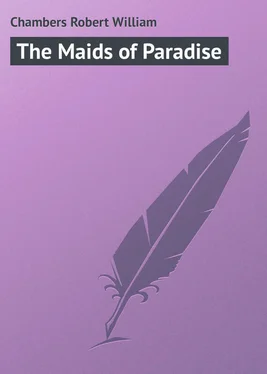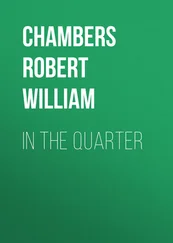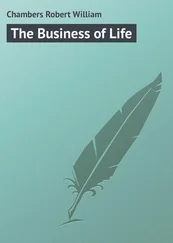Robert Chambers - The Maids of Paradise
Здесь есть возможность читать онлайн «Robert Chambers - The Maids of Paradise» — ознакомительный отрывок электронной книги совершенно бесплатно, а после прочтения отрывка купить полную версию. В некоторых случаях можно слушать аудио, скачать через торрент в формате fb2 и присутствует краткое содержание. Жанр: foreign_prose, на английском языке. Описание произведения, (предисловие) а так же отзывы посетителей доступны на портале библиотеки ЛибКат.
- Название:The Maids of Paradise
- Автор:
- Жанр:
- Год:неизвестен
- ISBN:нет данных
- Рейтинг книги:5 / 5. Голосов: 1
-
Избранное:Добавить в избранное
- Отзывы:
-
Ваша оценка:
- 100
- 1
- 2
- 3
- 4
- 5
The Maids of Paradise: краткое содержание, описание и аннотация
Предлагаем к чтению аннотацию, описание, краткое содержание или предисловие (зависит от того, что написал сам автор книги «The Maids of Paradise»). Если вы не нашли необходимую информацию о книге — напишите в комментариях, мы постараемся отыскать её.
The Maids of Paradise — читать онлайн ознакомительный отрывок
Ниже представлен текст книги, разбитый по страницам. Система сохранения места последней прочитанной страницы, позволяет с удобством читать онлайн бесплатно книгу «The Maids of Paradise», без необходимости каждый раз заново искать на чём Вы остановились. Поставьте закладку, и сможете в любой момент перейти на страницу, на которой закончили чтение.
Интервал:
Закладка:
Nor was it at all certain that the remaining jewels of the French crown were safe in Paris. The precautions taken to insure their safety, and the result of those precautions, are matters of history, but nobody outside of a small, strangely assorted company of people could know what actually happened to the crown jewels of France in 1870, or what pieces, if any, are still missing.
My chase after Buckhurst began as soon as Colonel Jarras could summon me; and as Buckhurst had last been heard of in Strasbourg, I went after him on a train loaded with red-legged, uproarious soldiers, who sang all day:
“Have you seen Bismarck
Drinking in the gay café,
With that other brother spark —
Monsieur Badinguet?”
and had drunk themselves into a shameful frenzy long before the train thundered into Avricourt.
I tracked Buckhurst to Morsbronn, where I lost all traces of him; and now here I was with my orders concerning the unfortunate people at La Trappe, staring out at the dismal weather and wondering where my wild-goose chase would end.
I went to the door and called for the military telegraph operator, whose instrument I had been permitted to monopolize. He came, a pleasant, jaunty young fellow, munching a crust of dry bread and brushing the crumbs from his scarlet trousers.
“In case I want to communicate with you I’ll signal the tower on the Col du Pigeonnier,” I said. “Come up to the loft overhead.”
The loft in the house which had now been turned into a cavalry barracks was just above my room, a large attic under the dripping gables, black with the stains of centuries, littered with broken furniture, discarded clothing, and the odds and ends cherished by the thrifty Alsatian peasant, who never throws away anything from the day of his birth to the day of his death. And, given a long line of forefathers equally thrifty, and an ancient high-gabled house where his ancestors first began collecting discarded refuse, the attic of necessity was a marvel of litter and decay, among which generations of pigeons had built nests and raised countless broods of squealing squabs.
Into this attic we climbed, edged our way toward a high window out of which the leaded panes had long since tumbled earthward, and finally stood together, looking out over the mountains of the Alsatian frontier.
The rain had ceased; behind the Col du Pigeonnier sunshine fell through a rift in the watery clouds. It touched the rushing river, shining on foaming fords where our cavalry pickets were riding in the valley mist.
Somewhere up in the vineyards behind us an infantry band was playing; away among the wet hills to the left the strumming vibrations of wet drums marked the arrival of a regiment from goodness knows where; and presently we saw them, their gray overcoats and red trousers soaked almost black with rain, rifles en bandoulière, trudging patiently up the muddy slope above the town. Something in the plodding steps of those wet little soldiers touched me. Bravely their soaked drums battered away, bravely they dragged their clumsy feet after them, brightly and gayly the breaking sun touched their crimson forage-caps and bayonets and the swords of mounted officers; but to me they were only a pathetic troop of perplexed peasants, dragged out of the bosom of France to be huddled and herded in a strange pasture, where death watched them from the forest yonder, marking them for slaughter with near-sighted Teutonic eyes.
A column of white cloud suddenly capped the rocks on the vineyard above. Bang! and something came whistling with a curious, bird-like cry over the village of Morsbronn, flying far out across the valley: and among the pines of the Prussian forest a point of flame flashed, a distant explosion echoed.
Down in the street below us an old man came tottering from his little shop, peering sideways up into the sky.
“Il pleut, berger,” called out the operator beside me, in a bantering voice.
“It will rain – bullets,” said the old man, simply, and returned to his shop to drag out a chair on the doorsill and sit and listen to the shots which our cavalry outposts were exchanging with the Prussian scouts.
“Poor old chap,” said the operator; “it will be hard for him. He was with the Grand Emperor at Jena.”
“You speak as though our army was already on the run,” I said.
“Yes,” he replied, indifferently, “we’ll soon be on the run.”
After a moment I said: “I’m going to ride to La Trappe. I wish you would send those messages to Paris.”
“All right,” he said.
Half an hour later I rode out of Morsbronn, clad in the uniform of the Third Hussars, a disguise supposed to convey the idea to those at La Trappe that the army and not the police were responsible for their expulsion.
The warm August sunshine slanted in my face as I galloped away up the vineyard road and out on to the long plateau where, on every hillock, a hussar picket sat his wiry horse, carbine poised, gazing steadily toward the east.
Over the sombre Prussian forests mist hung; away to the north the sun glittered on the steel helmets and armor of the heavy cavalry, just arriving. And on the Col du Pigeonnier I saw tiny specks move, flags signalling the arrival of the Vicomte de Bonnemain with the “grosse cavalerie,” the splendid cuirassier regiments destined in a few hours to join the cuirassiers of Waterloo, riding into that bright Valhalla where all good soldiers shall hear the last trumpet call, “Dismount!”
With a lingering glance at the rivers which separated us from German soil, I turned my horse and galloped away into the hills.
A moist, fern-bordered wood road attracted me; I reasoned that it must lead, by a short cut, across the hills to the military highway which passed between Trois-Feuilles and La Trappe. So I took it, and presently came into four cross-roads unknown to me.
This grassy carrefour was occupied by a flock of turkeys, busily engaged in catching grasshoppers; their keeper, a prettily shaped peasant girl, looked up at me as I drew bridle, then quietly resumed the book she had been reading.
“My child,” said I, “if you are as intelligent as you are beautiful, you will not be tending other people’s turkeys this time next year.”
“Merci, beau sabreur!” said the turkey-girl, raising her blue eyes. Then the lashes veiled them; she bent her head a little, turning it so that the curve of her cheeks gave to her profile that delicate contour which is so suggestive of innocence when the ears are small and the neck white.
“My child,” said I, “will you kindly direct me, with appropriate gestures, to the military highway which passes the Château de la Trappe?”
II
THE GOVERNMENT INTERFERES
“There is a short cut across that meadow,” said the young girl, raising a rounded, sun-tinted arm, bare to the shoulder.
“You are very kind,” said I, looking at her steadily.
“And, after that, you will come to a thicket of white birches.”
“Thank you, mademoiselle.”
“And after that,” she said, idly following with her blue eyes the contour of her own lovely arm, “you must turn to the left, and there you will cross a hill. You can see it from where we stand – ”
She glanced at me over her outstretched arm. “You are not listening,” she said.
I shifted a troubled gaze to the meadow which stretched out all glittering with moist grasses and tufts of rain-drenched wild flowers.
The girl’s arm slowly fell to her side, she looked up at me again, I felt her eyes on me for a moment, then she turned her head toward the meadow.
A deadened report shook the summer air – the sound of a cannon fired very far away, perhaps on the citadel of Strasbourg. It was so distant, so indistinct, that here in this peaceful country it lingered only as a vibration; the humming of the clover bees was louder.
Читать дальшеИнтервал:
Закладка:
Похожие книги на «The Maids of Paradise»
Представляем Вашему вниманию похожие книги на «The Maids of Paradise» списком для выбора. Мы отобрали схожую по названию и смыслу литературу в надежде предоставить читателям больше вариантов отыскать новые, интересные, ещё непрочитанные произведения.
Обсуждение, отзывы о книге «The Maids of Paradise» и просто собственные мнения читателей. Оставьте ваши комментарии, напишите, что Вы думаете о произведении, его смысле или главных героях. Укажите что конкретно понравилось, а что нет, и почему Вы так считаете.












